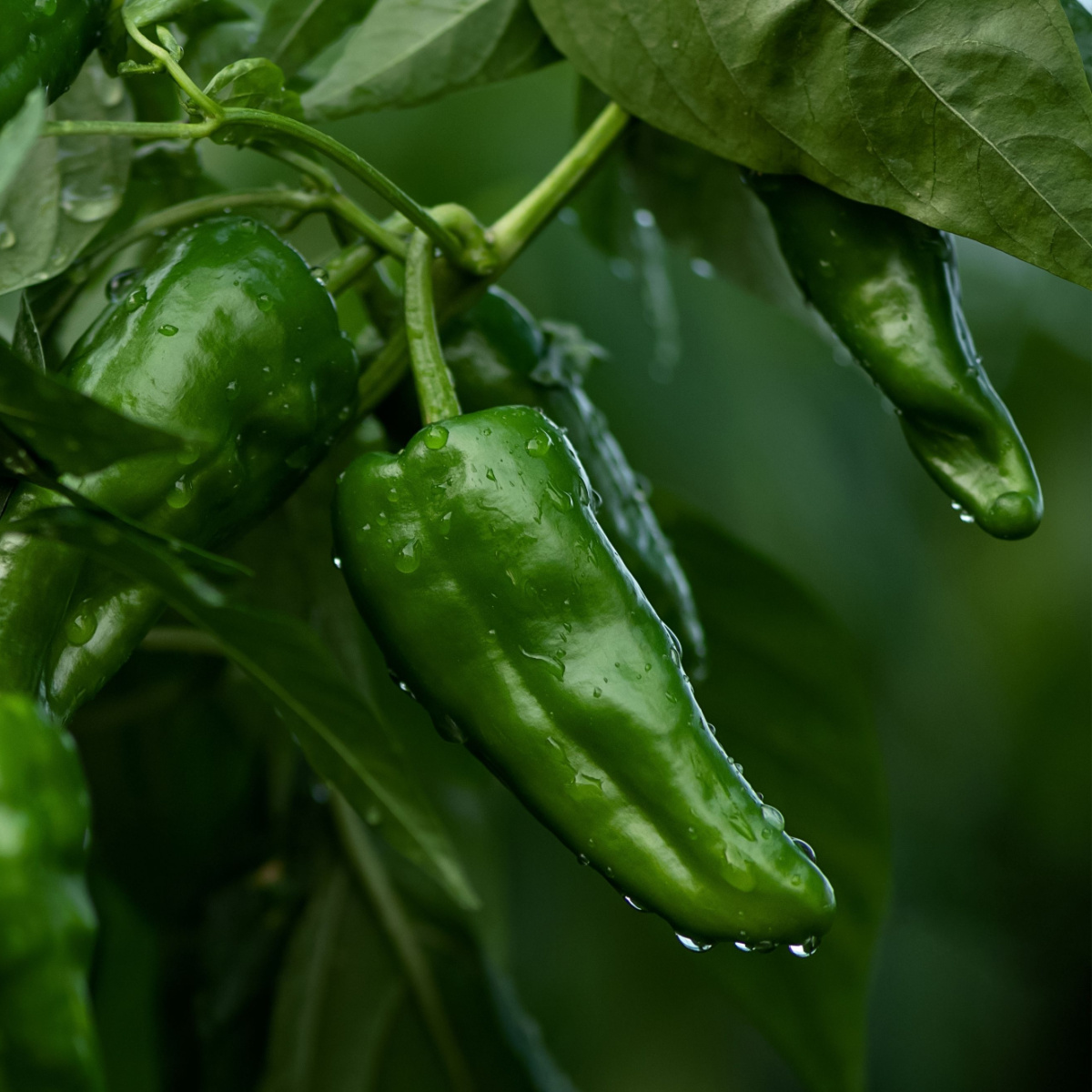Check Out the Best Fertilizers for Peppers and Enhance Your Garden's Yield
Check Out the Best Fertilizers for Peppers and Enhance Your Garden's Yield
Blog Article
Organic Vs. Synthetic Fertilizers: Which Is Best for Nurturing Healthy And Balanced Pepper Plants?
In the world of supporting healthy pepper plants, the choice in between artificial and organic fertilizers stands as a pivotal choice with significant implications. While both options purpose to supply vital nutrients to support plant development, the nuances of their influence on the soil, plant health, and the setting stimulate a debate that mirrors throughout the gardening area. Comprehending the distinct benefits and potential challenges of each fertilizer kind is important for pepper growers looking for to optimize their returns while maintaining an eco-conscious and lasting approach.
Benefits of Organic Plant Foods
Organic fertilizers use an environmentally-friendly and lasting method to beneficial pepper plants, offering crucial nutrients without making use of artificial chemicals. These natural fertilizers are stemmed from organic sources such as garden compost, manure, bone meal, and algae, advertising soil wellness and biodiversity. Unlike synthetic fertilizers, organic options release nutrients gradually, guaranteeing a balanced and constant supply for pepper plants to thrive.
One considerable advantage of organic fertilizers is their capability to boost soil structure and water retention. By improving dirt health, organic plant foods advertise advantageous microbial task, which aids in nutrient uptake by pepper plants. Furthermore, natural plant foods reduce the risk of chemical run-off, securing water resources from air pollution and protecting the atmosphere.
Moreover, natural fertilizers add to lasting soil fertility by advertising the growth of advantageous soil microorganisms. These microorganisms aid damage down raw material, launching nutrients in a kind that is conveniently obtainable to pepper plants. best fertilizers for peppers. By fostering a healthy soil community, organic fertilizers support lasting pepper farming techniques that profit both plants and the setting
Downsides of Artificial Plant Foods
Synthetic fertilizers, in comparison to their organic counterparts, posture different drawbacks when made use of to nourish pepper plants, influencing both plant health and ecological sustainability. One major downside of artificial fertilizers is their propensity to leach nutrients from the dirt rapidly.
Furthermore, the overuse of artificial fertilizers can add to water pollution. Excess plant foods not absorbed by plants can remove into water bodies, bring about eutrophication, where algae flowers diminish oxygen levels in the water, damaging water life. Synthetic plant foods are usually derived from non-renewable resources, such as fossil gas, adding to carbon emissions and ecological destruction during their manufacturing.
Nutrient Absorption Contrast
Effective nutrient absorption plays a vital duty in the general wellness and growth of pepper plants. When comparing natural and artificial plant foods in regards to nutrient absorption, natural plant foods have the benefit of offering an extra well balanced and slow-release source of nutrients (best fertilizers for peppers). Organic fertilizers have a variety of macro and micronutrients that are not only advantageous for the plants however additionally advertise healthy and balanced dirt microbial activity, which aids in nutrient uptake. On the other hand, artificial plant foods often offer a quick launch of nutrients, which can bring about seeping and overflow, causing reduced nutrient absorption prices by the plants.
Moreover, natural plant foods enhance soil framework and water retention capability, enabling pepper plants to access nutrients more successfully. This better dirt quality facilitates origin growth, making it possible for much better nutrient absorption. Synthetic fertilizers, although at first boosting plant growth due to their high nutrient focus, might impede long-term nutrient absorption by derogatory dirt health over time.
Ecological Effect Considerations

On the other hand, artificial fertilizers, although often even more concentrated and quickly offered to plants, can have destructive impacts on the environment if not used correctly (best fertilizers for peppers). Their manufacturing requires high power inputs, leading to greenhouse gas discharges and adding to climate adjustment. The runoff of excess artificial plant foods can contaminate water sources, leading to eutrophication and hurting marine communities.
Best Fertilizer Practices for Peppers
When fertilizing pepper plants, enhancing nutrient uptake and decreasing ecological influence are key considerations. To accomplish this, it is necessary to adhere to finest fertilizer methods tailored to the certain requirements of pepper plants. One critical technique is to execute a dirt examination prior to using any type of plant foods. This examination can figure out the pH level of the soil and determine any type of nutrient deficiencies, directing you in selecting one of the most ideal plant food formula.
Another vital technique is to fertilize pepper plants at the correct time. Commonly, peppers benefit from obtaining fertilizer at planting and after that once more when they start to flower. Over-fertilizing can cause nutrient imbalances and hurt the plants, so it is important to adhere to suggested application rates.
Furthermore, picking a well balanced fertilizer with an NPK proportion that matches pepper plants' needs is basic. Organic plant foods, such as compost or manure, can be click site superb options as they release nutrients gradually and improve dirt structure with time. Nevertheless, synthetic plant foods can offer a fast nutrient increase when needed. Inevitably, integrating artificial and organic plant foods judiciously can assist nurture healthy and balanced pepper plants while reducing ecological impact.
Conclusion

Organic plant foods offer an environmentally-friendly and lasting approach to nourishing pepper plants, giving important nutrients without the usage of artificial chemicals. Unlike artificial fertilizers, organic choices release nutrients slowly, making sure a balanced and stable supply for pepper plants to prosper.
Artificial plant foods, in comparison to their organic counterparts, position different downsides when made use of to nurture pepper plants, influencing both plant health and environmental sustainability. When comparing synthetic and organic fertilizers in terms of nutrient absorption, organic fertilizers have the advantage of providing a top article much more well balanced and slow-release resource of nutrients.Moreover, natural plant foods improve soil structure and water retention capacity, allowing pepper plants to access nutrients much more efficiently.
Report this page